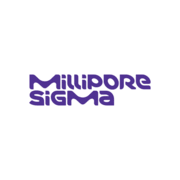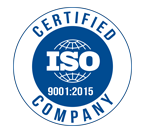Antibiotics, Antimycotics & Preservatives
Antibiotics available include penicillin, streptomycin, and tetracycline. Antimycotics can prevent the growth of fungi and are perfect for laboratory applications to prevent or kill fungi. The selection available includes amphotericin B, nystatin, and fluconazole.
Preservatives are essential in the laboratory to prevent the growth of microorganisms in laboratory reagents, solutions, and samples. They’re ideal for extending the shelf life of your diagnostic kits, buffers, staining solutions, and more, providing precise, accurate lab results.
-
-
Bleomycin Sulfate from Streptomyces verticillus
MP BiomedicalsBleomycin Sulfate is an atineoplastic antibiotic. A mixture of cytotonic glycopeptide antibiotics which reacts with DNA and causes strand scission; they have also been shown to have a type of oxygen transferase activity. Bleomycin A2 is the main component of the bleomycin employed clinically.…
-
Penicillin G Potassium Salt
MP BiomedicalsPenicillin G is a narrow spectrum antibiotic. Active against gram-positive and gram-negative aerobic and anaerobic bacteria Inhibits cell wall synthesis Stable against hydrolysis by β-lactamases, such as penicillinases and cephalosporinases The drug of choice for Streptococcus…
-
Cefoperazone Sodium Salt
MP BiomedicalsCefoperazone sodium salt is a broad spectrum third generation cephalosporin antibiotic that has similar antimicrobial activity to ceftazidime. It is active against Pseudomonoas aeruginosa and it has enhanced activity against Enterobacteriaceae and Bacteroides sp. in the presence of the…
-
Ampicillin, Sodium Salt
RPI (Research Products International)Inhibitor of bacterial cell wall synthesis resulting in lysis or deformation of the bacterium. Inhibits crosslinking of peptidoglycan by binding and inactivating transpeptidases. Highly active against gram negative bacteria. B-Lactamase sensitive. Plant cell culture tested. Widely used as a…
-
Gentamicin sulfate, 50 mg/mL, 10 mL
MP BiomedicalsGentamicin Sulfate Solution is effective against gram-positive and gram-negative bacteria, as well as mycoplasma.
-
Tetracycline HCl
RPI (Research Products International)Bacteriostatic antibiotic with activity against gram positive and gram negative bacteria. Slightly soluble in water.
-
Fluconazole
MP BiomedicalsFluconazole is a subclass of the synthetic triazole antifungal agents. A highly selective inhibitor of fungal cytochrome P-450 sterol C-14 a-demethylation. Fluconazole is a potent inhibitor of CYP2C9. Fluconazole interferes with fungal ergosterol synthesis and downregulates the metallothionein gene.
-
D-Cycloserine, 98%
BeanTown ChemicalCAS: 68-41-7 EC No: 200-688-4 MDL No: MFCD00005353 RTECS: NY2975000 Powder Molecular Formula: C3H6N2O2 MW: 102.09 Melting Point: 147° (decomposes) Optical Rotation: [α]20/D +115.0±5.0°, c = 2% in water
-
Spectinomycin is an aminocyclitol antibiotic, closely related to the aminoglycosides, it inhibits protein synthesis (elongation) by interfering with peptidyl tRNA translocation. Mutation in rpsE (the gene for ribosomal protein S5) prevents binding of spectinomycin. Specinomycin is used in cell…
-
Ampicillin
Zymo Research CorporationAmpicillin inhibits bacterial cell wall synthesis. Commonly used to select for ampicillin resistant plasmid bearing strains of bacteria. Effective against both gram (-) and gram (+) bacteria.
-
G418 Sulfate Solution
MP BiomedicalsG418 Sulfate is used as a selective antibiotic in the concentration range of 100 - 200 µg/mL for bacteria, or 200 – 500 µg/mL for most mammalian cells. It is also used for the selection of transfected mammalian cells, yeast, dictyostelium, plant and bacteria. G418 Sulfate is an…
-
Streptomycin Sulfate
Bio Basic Inc.The Bio Basic Inc. streptomycin sulfate is suitable for research and laboratory use. It is mainly used to cure tuberculosis (TB) infection. Application: For Laboratory Research Only
-
Chloramphenicol, USP Grade
G-BiosciencesTESTED AGAINST BOTH SENSITIVE and RESISTANT CELLS. MOLECULAR BIOLOGY GRADE Mode of action and Anti-microbial spectrum: Bacteriostatic agent against both gram negative and gram positive bacteria. Enters sensitive cells by active transport. Within the cell it binds to the 50S…
-
Sulfamethoxazole
RPI (Research Products International)Bacteriostatic antibiotic that inhibits nucleic acid synthesis in sensitive micro-organisms.
-
RPI Methicillin Sodium Salt
RPI (Research Products International)The RPI methicillin sodium salt is suitable for use in research facilities and chemical laboratories to conduct wide range of experiments. It is available in sturdy bottle that endures heavy and rigorous usage. Application: For Research or Further Manufacturing use only
-
 Neomycin Sulfate
RPI (Research Products International)
Neomycin Sulfate
RPI (Research Products International)Aminoglycoside antibiotic active against most gram negative bacteria. Selective agent for the incorporation of the NPT II (APH3') gene in plant tissue. Plant cell culture tested. Ingredients: Neomycin B: 85% Neomycin C: 10%
-
Cefotaxime
RPI (Research Products International)Inhibitor of bacterial cell wall synthesis. Inhibits the crosslinking of peptidoglycan by binding and inactivating transpeptidases. High activity against gram negative bacteria. Often used for elimination of Agrobacterium species after inoculation. Resistant to B-Lactamase activity. Non toxic…
-
Metronidazole
RPI (Research Products International)Derivative of 5-Nitroimidazole with activity against anaerobic protozoa and anaerobic bacteria. Protect from light.
-
RPI Penicillin G Potassium Salt
RPI (Research Products International)The RPI penicillin G potassium salt is mainly used in research facilities and chemical laboratories to conduct wide range of experiments. It is available in sturdy bottle that endures heavy and rigorous usage. The penicillin G potassium salt is used as a cell culture additive as an antibiotic. …
-
Chloramphenicol, 99%
BeanTown ChemicalCAS: 56-75-7 EC No: 200-287-4 MDL No: MFCD00078159 RTECS: AB6825000 Powder Molecular Formula: C11H12Cl2N2O5 MW: 323.13 Melting Point: 148-150°
-
G 418 Sulfate, 40mg/ml Solution Sterilized
Bio Basic Inc.The Bio Basic Inc. 40 mg/mL sterilized G 418 sulfate solution is suitable for laboratory and research use.
-
Mithramycin (Plicamycin)
Bio Basic Inc.The Bio Basic Inc. mithramycin (plicamycin) is suitable for laboratory and research use.
-
Ampicillin, Sodium Salt - 25g
IBI ScientificAmpicillin inhibits cell wall biosynthesis (peptidoglycan cross-linking). Stock Solution of antibiotics dissolved in water should be sterilized by filtration through a 0.22 micron filter.
-
Minocycline HCl
RPI (Research Products International)Bacteriostatic antibiotic with activity against gram positive and gram negative bacteria. Cell culture tested.
-
Contains 10,000 units/ml of penicillin (base), 10 mg/ml of streptomycin (base), and 25 µg/ml of amphotericin B in 0.85% saline. Recommended for use in cell culture applications at 10 ml/L. Penicillin inhibits bacterial cell-wall synthesis by preventing peptidoglycan linkage followed by the…
-
Nocodazole
MP BiomedicalsApplications Methyl(5-(2-thienylcarbonyl)-1H-benzimidazole-2-yl)carbamate is an anticancer drug that has been shown to interfere with the structure and function of microtubules in interphase and mitotic cells. Malignant cells may be more susceptible to the antimicrotubular effect of nocodazole…
-
Streptomycin Sulfate
MP BiomedicalsStreptomycin Sulfate is an aminoglucoside antibiotic in which streptidine is linked glycosidically to the disaccharide streptobiosamine. Inhibit bacterial protein synthesis Gram positive bacteria Gram negative bacteria Mode of Action: Inhibits prokaryote protein synthesis. Binds to…
-
Cycloheximide
RPI (Research Products International)Antifungal anitbiotic that inhibits protein sysnthesis in eukaryotes. Blocks translation of mRNA on the ribosome derived from Streptomyces griseus .
-
Chloramphenicol
Bio Basic Inc.The Bio Basic Chloramphenicol with a composition of Application: For Laboratory Research Use Only
-
-
Sulfanilamide
MP BiomedicalsSulfanilamide is a molecule containing the sulfonamide functional group attached to an aniline. As a sulfonamide antibiotic, it functions by competitively inhibiting (i.e., by acting as a substrate analogue) enzymatic reactions involving para-aminobenzoic acid (PABA). PABA is needed in enzymatic…


































